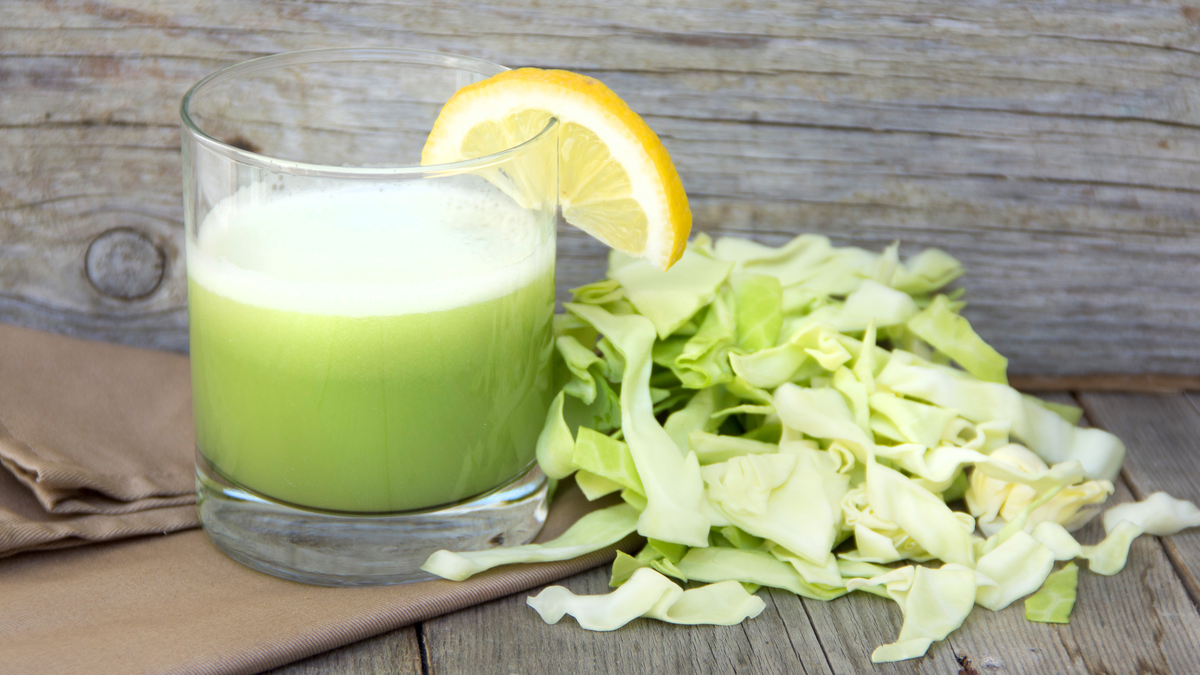Cabbage may not have the same level of popularity as other trendy vegetables like kale, but it certainly deserves a place in your diet due to its impressive health benefits. Both kale and cabbage belong to the same plant family, Brassica oleracea, and are packed with essential nutrients. Nutritionists are increasingly recognizing cabbage as a powerhouse food, loaded with healing vitamins, amino acids, and antioxidants. With so many health benefits, it’s no wonder that people are starting to include cabbage in their daily routines.
While cabbage might not have the same fanfare as celery in the juicing community, it has nonetheless gained a significant following, particularly on social media platforms. One notable group of fans are people with digestive issues, who claim that cabbage juice helps manage their symptoms. But is there scientific evidence to back up these claims? Let’s take a deeper look.
Why Would Anyone Juice a Cabbage?
Although scientific studies specifically focusing on cabbage juice are limited, there’s no doubt that cabbage is a nutrient-dense vegetable. In fact, just one glass of cabbage juice can provide you with half of your daily recommended vitamin C intake. This essential vitamin plays a crucial role in boosting your immune system and skin health. Moreover, cabbage is rich in antioxidants, which may explain its beneficial effects on both heart and skin health.
One of the biggest reasons people turn to cabbage juice is for its impact on gut health. Cabbage juice has long been considered a “folk remedy” for stomach ulcers. While there’s not enough scientific research to confirm this for humans, recent studies involving rats suggest that cabbage juice may have gut-healing properties.
Interestingly, cabbage contains a unique amino acid called S-methylmethionine, sometimes referred to as “vitamin U.” This compound has been linked to anti-ulcer properties, which could be the main reason why people who consume cabbage juice regularly report relief from ulcer-like symptoms.
Green vs. Red Cabbage: Which is Better for You?
If you’ve ever wondered whether there’s a difference between green and red cabbage, the answer is yes—aside from their appearance, red cabbage contains higher amounts of antioxidants. Specifically, red cabbage has higher levels of anthocyanins, the compounds responsible for the vegetable’s vibrant purple-red color. These anthocyanins also provide potent antioxidant benefits, making red cabbage a powerful addition to your diet.
If you’re able to find red cabbage, it may be worth the extra cost for the added health benefits from those powerful antioxidants.
How to Make Cabbage Juice Taste Better
While cabbage juice boasts numerous health benefits, some people may find its flavor less than appealing. The good news is that there are simple ways to improve the taste of cabbage juice without losing its nutritional value.
One of the most common ways to mask the strong, sulfuric taste of cabbage juice is by adding a green apple. Green apples tend to have the highest concentration of vitamins and minerals compared to other varieties, and their tart flavor balances the cabbage’s taste nicely. If you’re not a fan of apple juice, there are other fruits you can add to make the cabbage juice more palatable. Honeydew, orange, or lemon juice can all help cut the sharpness of the cabbage while adding a fresh burst of flavor.
Feel free to experiment with different combinations of fruits until you find the right balance. The key is to enhance the flavor without sacrificing the health benefits of the cabbage itself.
Should You Try Cabbage Juice?
Although cabbage juice has not been extensively studied in scientific research, there is no denying the impressive nutritional profile of this vegetable. Cabbage is full of essential vitamins, minerals, and antioxidants, which can support various bodily systems, particularly your digestive health. Anecdotal evidence suggests that cabbage juice may have powerful healing effects, making it a potential go-to remedy for those dealing with gut issues.
Adding a glass of cabbage juice to your diet could be an easy, affordable way to improve your student health and overall well-being. With its array of nutrients, antioxidants, and digestive benefits, cabbage juice is a simple yet powerful health hack that anyone can incorporate into their daily routine.





